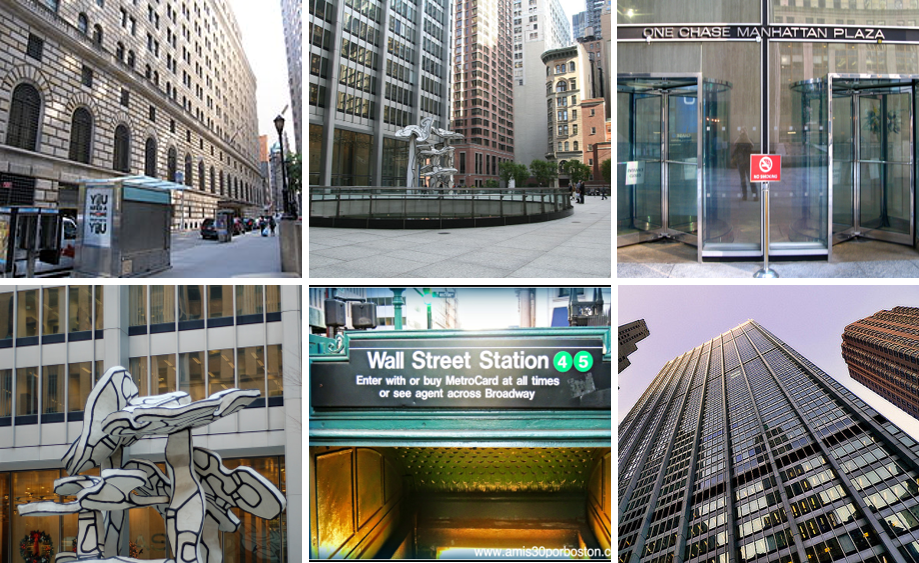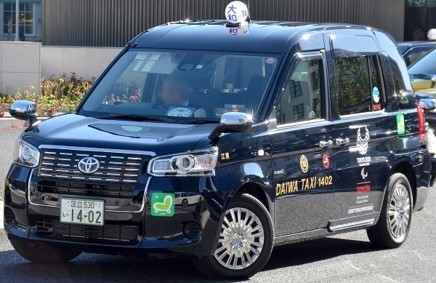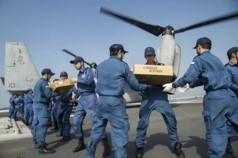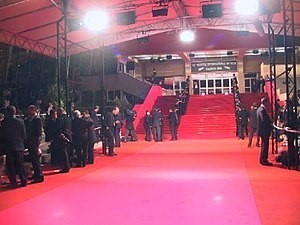

東京都港区赤坂二丁目14番11号
天翔赤坂ビル7階 〒107-0052
Akasaka Tensho Bldg 7th Fl.
2-14-11, Akasaka Minato-ku
Tokyo 107-0052 JAPAN
有料職業人材紹介事業者
厚生労働大臣許可番号13ーユー309862
Archives Blogs ~April 2019
2019-4-8

Information
Personal Information has become comercial resource as
the information gets digitalized and easily transmittable.
Internet was a tool to share information, attaching value to Personal Information. But the innovations that have since
followed have made information much powerful resource.
The media business has been made obsolete when all
information can be transmitted instantly without
intermediation by humans. We no longer need to wait for news papers in the morning
but can get to the details of events or accidents that happen thousands of miles away.
You would not need to rely on professional journalists to deliver the news to you.
Similarly, our private information is instantly copied, transmitted and shared with those who
will be able to use such information for the sake of their business. Ways to gather as large
volume of personal information for a long and continuous terms are thought of and variety
of smart tools are introduced to the soociety.
Today, all of us give up much information of ourselves for lifetime. 5W1H per each activity
of ours may be all recorded and shared in digitalized formats in the background of our daily
lives. And such poole of data is traded for money as precious resource.
Unlike Coals or Crudes, this new resource for our future society has no limits and last forever.
This resource will fuel the business which generates profits.
Profits will then be distributedto the society eventually.
Until about half a decade ago, people talked a lot about how to protect human privacy and
personal information. Today, we see governments, public sectors, and business all work hard
to collect personal information to make a big data or centralized data pool. They say it will be
good to improve service, develop new products or efficient society. The givernment's regurations
about personal information protection created the rules for information sharing, but were not
meant to stop the flows of personal information.
Some people say information is a key resource to the next century with is value as precious
as crudes or coals in 20th century. It is also said that Internet and a whole range of digital
innovation is driving the path to next industrial revolution.
It certainly is a revolution of the society value, business structure and people's life style.
And we shall have little to be scared of and can believe some bright future ahead of us all;
such that soon, we will not have to work like we used to, and we will not have to move
around as we had to in the past.
Smart Society will go beyond automation or efficiency; and it will mean Smart Work
and Smart Life.
We should all be convinced that we do not hesitate to share our private & individual data
more freely in orderso that our future of Smart Society will come true much sooner.
2019-1-25

On a Cold Winter Day - (2)
I saw an article that science experts alerting that we have
Two Minutes to the End of our Planet Lves.
Doomsday Clock has come to 'Two minutes to Midnight'
as a famoust UK heavy metal band, 'Iron Maiden' used to
sing. They say it is attributable to ever uncontrolled CO2
emmission gas that is warming this planet.
Yet, it is very cold with snow storms blowing around the world; and even in Tokyo, winds are cold
and it is supposed to snow this coming weekend. The weather from mid-January to early Feruary
has always been like this since my childhood days; and, as just we feel the air around us, and
as ignoring the scientific data, it seems that little has changed about the cold winter at this time
of year.
There are so many, though, that have changed around us over the last few decades.
When I started my banking career at a US bank, we had no PC on our desk. No mobile phone or
no e-mails had existed. We relied on a telephone on our desk, and telex print-outs that were
delivered from a telex operation room. Fax machine was not yet so popular, either.
When doing my corporate credit analysis, I recall having to spread 5-year historical financial
numbers, itemby item, and ine by line, on a piece of paper; and using my calculator, not even
one made by HP, make a whole set of financial ratios to analyze the year-on-year growth and
changes of various financial indicators.
Having done all, and then I made financial projections for the next 5 years to come, once again,
all manually, with a small calculator and papers. With no PC, there was only one way to keep
the work outputs; (i.e. filing papers in physical files. In order to share the result at meetings,
we could only photo-copy the papers by, the then super office machine, a Xerox copier.
It was only late 80's that IBM PC's were placed on our desks. We had Lotus 1-2-3, which was
somewhat an ancient type of today's Excel or similar software to create calculation sheets.
E-mails were not yet there, so we had to print the outputs for sharing and circulation.
Fax machines replaced telexes that could be sent only by specialist telex operators, so that
people became able to choose their own timing to communicate with people outside.
Younger generation who had not lived through the days can hardly imagine how we could work
on deals which were as complex as the deals they work on today.
Technology has made so many things faster, simpler and efficient. Today, we can read emails
on mobile phone, and even send and receive excel or power point files wherever we may be
and whenever it is. We thank Humans for all these.
The style of our work and living have changed so much, and perhaps there are areas where
we burn less energy and also where we use more powers.
World has changed, scientists say, but it gets cold in winter and it gets hot in summer.
However, the way we live and work everyday has changed so much thanks to all the technologies
enabled by great scientists.
It may not be a question of whichever way we would want our emvironment to be, but it may be
a matter of how we should preserve the value of our planet while we make our human lives more
and more efficient.
It is once again a time to test the great brains of or scientists.
2019-1-18

On a Cold Winter Day - (1)
During this time of year, cold winds blow through concrete
buidings. When coming out of the subway station, feeling
the cold air, I recall the days of my working in Manhattan.
After a few years in Asia, I moved to NY Headquarter of
The Chase Manhattan Bank, N.A. - which today is known
as JP Morgan Chase. Its headquarter building was, located
next to Federal Reserve Bank and a minute off Wall Street, a 60-story skyscraper built by David
Rockfeller, who was then CEO of the bank.
From mid to late 80's, the old corporate lending based credit & marketing business model was in
transition to global corporate finance & capital marketsbusiness model. With no expectation,
I was placed in the middle of such transition. The bank, known as one of the top rated money
center banks, had been hurt by credit problems in Latin Americas, and was testng a series of
restructuring. Externally, they were also exposed to challenges from large securities brokers who
were quickly expanding their securities business globally. Being fueled by rising stock markets
and helped by fast growing activities in international securities markets by large institutional
investors funds, US securities houses were quickly expanding their capital markets activities.
About the same time, in London, so called 'Big Bang' was announced, and banks are allowed to
enter into securities brokerage business among all the other deregulations of market businesses.
Banks from the continental Europe, and securities companies from US were those to quickly
jump into the fierece competition only to win market share of the early days of Eurobon market.
Chase, and other US banks, however, being regulated at home by Glass-Steagall legislation, were
neither as fast nor as aggressive in activity in Europe.
UK Clearers were also struggled to compete banks from Germany, Switzerland, etc. who had
longer history of unversal banking business models. However, it appeared, after all, that US banks
lost little while large Eurobond houses had made so little money on the back of fierece race to win
many dog deals, by cutting every possible cents on underwriting prices and by writing "bought
deal" tickets with pre-matured distribution platform. In those days, banks in Europe, and UK to
some extent as well, had strong & lucurative retail business franchise, so that, unlike more
regulated US banking sectors, banks in Europe had powerful balance sheet, whic was indeed
supported by more generous captal adequecy rules to reguate the banking business of those days.
While many banks lost money to win shares of Eurobond market which eventually collapsed itself,
corporate mergers and aquisitions in US were becoming active on the back of rising equity market.
Banks, like Chase, Morgan, Citi, Manufactureres Hanover (Manny Hanny) were those who quickly
took advantage with their strength in credit lending & distribution.
Billions of dollars worth of new deals emerged every week, almost all of which were leveraged by
huge bank loans. Banks were able to secure their fees while sharing the risks among joint
bookrunners. Bookrunners kept all control of the deal, not just commercial terms and conditions,
but also documentation, syndication, and fees.
Banks from Europe, UK and Japan were considered to be "stuffees", - deal hungry with balance
sheet capacity but no deal making experts on the ground.
By the time these foreign banks becoming aware of the deals, the deal terms woudl have been
well cooked and done for delivery to the market. The best part of the deals would have been
shared among the deal sponsors (PE funds, etc.), investment bankers and bookrunner banks.
What evolved from those days in US corporate market seems to have created the base for what
have later become the market standard and/or common practices, which we see even today, and
in the global market places. There were many "try & errors" by those who had worked long hours
of work every day and night during those years. As I recall, however, everyone on the Street
had little hesitation or few complaints about the amount of time they had to spend to make their
deals happen and work for clients. Those were the days of hard & long hours of work, with which
people felt satisfied and enjoyed being in the center of the corporate finance parties.
Clearly, those were good old days, and were different from the recent days.
I could go much longer writing memories of, and lessons from, those days.. but I will stop now.
The rest of the story shall, perhaos, continue on another day.
2019-1-17

More expensive than free meal ?
One day, you get approached by someone who claim to run
a school about financial markets and investments.
He'll claim he has made great fortune by his personal investment; and, because he is so nice, he says, he is obliged to
share the secret of his success with those who innocently
want to be rich.
He will invite you, if interested, to free sushi dinner party at his place, and then to his seminars
that are indeed marketing tools of his money making machine. In front of all joining such events or seminars, he will go on and on about his way of viewing investment products, markets and life.
He is good at using simple terms in his explanation; so that those having little knowledge of
financial markets may understand his story or lectures. Very often, he uses very direct and
straightforward words in strongly denying what are deemed to be the market norm or industry
standard. He quietly and softly repeat nothing special, things which are well known by anyone
or things that do not take much of special knowledge to conclude.
He will often defer explanation or analysis of complex issues with remarks, often made,
"you may not understand because these are overly complicated for you. But, don't worry,
all you need to do is to trust my words, the words from the man of experience. You may feel
completely relaxed and rest assured."
Anyone with a bit of knowledge about financial markets might wonder what value he is bringing
to the audience. "None", should be the answer. Apparently, he is not giving anything to his
audience while he is gaining his self-satisfaction by making people listen to and watch him with
much of respect and jealousy. He seems to be enjoying with it.
To be honest, you won't know what he did to achieve what he calls a big success; or you won't
be sure what he does all day except speaking what he feels like speaking off his sloppy month.
He hires people to play as his messengers to broader audience, who will do what will make
their boss shine more. The way they work in a group reminds you of a kind of cult group.
They invite people to free 'sushi' dinner events, where the founder of the group speaks how he
made his success and how he wants people to share his happiness by leaning his way of living.
He will say he is doing what he does because he is a nice person.
In order to run their activities, costs are involved and they need raise capital.
So, at the free dinner, they gently invite people to their official seminars, which people will be
required to pay participation fees to attend; and they will eventually aim to persuade people
to sign up for their school, which they run, that will cost people some fixed charges for a period
of several months. Of course, you will hear from them that seats are getting filled so quickly
and there will not be vacant seats available for everyone.
You wonder what they teach at their school. Contents provided by the school include a long list
of lectures about financial markets and investment products.
Once again, you may be disappointed by finding the list being full of no surprises. By the way,
teachers are not licensed and no proof of their qulifications are given.
They also sell products: insurance producs and real esates. Their sales forces call themselves
"consultants" - but their job is to sell these products. They are not licensed either as insurance
broker agents or real estate dealers. They most likely make substantial selling jobs but do not
execute deals. Instead, they make "introduction" of their clients, often picked up as students
of their school attendees at seminars or sushi dinner events, to third party licensed broker
dealers, and agents.
To clients they give no representation or warranties on what they sell, and let the third parties
take over all liabillities and responsibilities. For their introduction, consultants receive
remunerations from the broker dealers or agents who close deals with clients.
The group is not licensed as Financial Instrument Exchange Agent or Dealer.
So, they carefully choose not to act as if they are soliciting investments or providing investment
advices. Truth of the matter, however, is unknown, but they do speak to their clients a lot about
what to do and what not to do, or what to buy/sell and what not to getinvolved in.
Apparently, they had once thought about applying for Investment Advisory license under Fnancial
Instrument Exchange Act. But they say they gave up; - and they gave up because they found
no value in it. Is that right ? One might suspect they had to give it up because they could not
manage to meet all that will be required to keep the license.
They say they do not sell or advise on Financial Instruments; but they do teach in their school
and at their seminars much about Financial Instruments, not for the sake of making the attendees
knowledgeable but to make them learn what to do. Practical measures for and secret of success
will be shared by the great founder of the group, they say it being the key mission of their school.
By the way, their top recommended product is a property investment in a developing coutntry.
Details of this product is, however, not shared until participating the paid seminars. They say
their product will enable one to own a piece of land in the midddle of nowhere in a developing
country. And their logic is that the land prices will soar as the economy of the country start
booming, which will happen for sure in the very near future.
Anyone interested may join free sushi dinner party, but tickets will go very quickly.
2018-12-3

Gettin' around in Tokyo
One more blog about transportation within Tokyo...
For the sake of foreign visitors, Tokyo taxis are being
renewed. New vehcles look like black cabs in London.
They are taller and provide more leg space in the back
seat areas. The sliding & automatic doors will welcome
passengers and passengers may find various signes
inside the cabs in English, Chinese and Korean languages. Drivers are said to be taking
English lessons so that they may be able to say a few words in English.
Not sure how good they may be; and whether drivers are enjoying their English lessons.
New vehicles give more space for passengers; but less for luggages.
Travellers may struggle with their large-sized globe-trotters and their over-sized bags
because they find the trunk room spaces being very small. Beises, there will be serious
disappointment visitors may feel.
Taxi drivers in Tokyo do not come out of their driving seats when passengers struggle with
their luggages. They watch you through their room mirrors to make sure that their shiny
vehcles may not get scratched or hurt by passengers trying aggressively to push their
hard suit cases into the small trunk spaces.
Rarely, at airports, you may get the drivers walk out for you to help you with luggages;
however, most often, when you are in town, you must help yourselves as you cannot
expect your taxi drivers to willingly offer their assistance with your luggages.
Yet another disappointment for all is that many drivers of today are not familiar
with the roads within Tokyo. They are not as well trained as London cab drivers, or the
streets in Tokyo are never as easy as those in Manhattan.
There will be so much reliance on 'GPS car navigators' which will not necessarily be
the best of the solutions. They do not show the best way to your destinations.
In congested roads in Tokyo, the shortest ways in distance may not necessarily be the
shortest way by time. You could easily get stuck in traffic and waste your time while
the drivers care least because their meters run, not only by miles, but also by time.
Japan, as a whole, spend so much money for "o-motenashi" for foreigners;
whatever that may mean or how much value people may really find in it.
The truth of the matter is that they are lilely to me missing something.
They care about how well they look; but ithe truth of the matter is things can only
get worse for those who are repeat visititors or residents; that is: getting around
in Tokyo has become, indeed, more unfriendly and stressful than before,;
whether travelling by subway system or by taxis.
2018-11-9

Subway System in Tokyo
Tokyo is proud of its Subway ("Tube") System.
With 13 different lines, one will be able to reach 285
different stations. There are over 8.6 million passengers
pet day and the entire system, when all combined, reach
as long as 305km. Tokyo's subway is No. 1 of the world
in its total number of passengers, but is only surprising
that it is only the 7th in its total kilometers that it runs.
The reality today is, however, different from what one used to hear.
There is one serious problem that many local users feel about nowadays is that the trains are
more crowded, and run with more frequest delays.
Trains being clean and passengers being polite are no longer truth.
Over the last few decades, many of the subway lines have been connected with trains that
come from, and go to, surburban areas,
It was intended to serve passengers commuting from distant homes with more convenience;
but such intention indeed worked agaist the passengers who live in metroplitan areas.
Thos who paid more to buy or rent houses or condominiums in metiroplitan areas, with
wishes to make more comfortable commuting, are now completely disappointed.
Thos who used to enjoy lives in metroplitan areas with great convenience and comfort by
the subways now find the subways are full of passengers from non-neighboring areas.
What is worse, these passengers rush into train cars, push people over to secure their
seats. Train cars are filled with those people's sweats and noises.
Furtthermore, trains connected from subways to the distance is causing more delays.
When going out of the original subway system area, the trains run on the surface, not the
underground. Bad weather, gusty winds, snows, or anything that affect the trains safety
will mean that the trains will be seriously delayed or cancelled.
It would be so much better all trains outside the subway system are cancelled, then the
residents in metroplitan areas feel they return to the old days; (i.e. days with peace and
quiet travels by subways to and from offices or schools.
However, such won't happen so often. In most cases, trains from the distance run with
delays, which slow down the subways, and make series of causes for unexpected stops
or unbearable crowdedness.
Decrease in the national population is a problem for this country indeed; however,
people might think that it will be one definitive way to bring them back to the good
old days of life with Tokyo Subway System.
2018-10-15

Business as Usual
This Website was finally made public as of last Friday
and a short message from us was sent to those friends,
former colleagues, clients, partners, etc, who had some
dealings with us in the past, and we announced the
opening of our new venture.
Hopefully, with a tool like this, many more people will
find us to let us share more joy and pleasure of work
together.
For those who have known us for some time, things will just continue as always
although we might be a bit more proactive in seeking opportunities.
No real changes whether a venture takes the form of a company or not.
Life goes on as usual.
2018-09-20

Trading Business
Think you trade and be free of profit & loss responsibility.
You are authorized to make your calls as to when,
what and how to buy, and to sell; and you are also
given allocated capital and funding to support trading
position. You may be successful in your trading so that
your trading account show profits; or you may make
a series of wrong decisions so that you accumulate losses which would reduce the capital of the firm.
In a world that we are used to, performance of trading was mesured by the amout of
risks taken and the profits or losses resulting from trading & risk management.
The world changed, as it appears, so that trading authority and p&l responsibility may be
separated.
One institution created a trading book, and gave someone dealing authority with trading
limits and capital. The one who runs this trading book is expected to make his professional
judgment to make the trading operation successful. However he was given no responsibility
for the profits and loss on his trading account. He is expected to pass any profits or losses,
which being attributable to his trading performance to the other departments, who have no
rights or influence to trading decision.
You'd wonder how this trader might really feel when his profits goes to someone
else while he can also pass losses to someone else.
Furthermore, You might wonder how someone who does not trade may be made
accountable for the profits or losses that was created by a trader working in another
office building.
What might surprise you is that this new concept was introduced by top management
of one major firm in a major market.
He indeed never trade in his whole career but as a president he is responsible for
the entire profits and losses of the firm.
Does it sound all right ? I guess the answer is NO because this new rule will collapse
the business dicipline.
If we move to a next stage of robotic business, someone will have to be made
responsible for the profits and lossses made on automated trading robot.
Hopefully it won't be reverse; i.e. you trade and the robot will be responsible for the
profits and losses.
2018-09-14

Gettin' Ready for Unpredictables
We have experienced many disastors caused
by the nature. Recent quakes across the country,
and across the waters in other continents,
caused the lives there at risk, and brought
the people living there great inconvinience.
When going through those difficult days,
we come to realize what will be the ultimate
needs of human lives; which are : amongt all, lights, water, fire and information.
You might think of many others, such as food, toilets, lines, blankets, etc.,etc.
By the time one worries about food, one woulld have found a place to breathe,
lights to enable a look-around. The very basic technology of human is fire, and
clean water, wich will be essential for human survival.
What about your access to information then ?
If it is only for a human survival, one might be able to live without any access to
information. But we have come a long way since the first human being started lives
on this planet, and we have lost our skills or instincts to learn things from the nature.
We have learned to read, hear or watch televised or printed information too much.
Besides, the latest advance in infrmation technologies have made us so much reliant
on smart phones and internet. Unfortuntaely, those techinologies will only work with
electricity. Electricity wil have become scarce commodity when a big natural disastor
hit our lives. Your smart phone's battery will last only for some time, during which
time there may be litte information being available as the new wire stations may not
be functional. Even though the news reporters from distance may try to gather information,
they might not be successful until the chaos in the disastor-hit area come to hold
themselves in order to dispatch on-site information.
After the heavy rains of this summer, and after the latest quakes in Hokkaido, we hear
many experts on media alerting us of "what if the same hit your place ?", or "what if
some large tsunami hit Tokyo Bay ?" They show their some simulation and their anlysis,
which all sound very serious and even likely.
Following 3.11 (Fukushima quakes), Tokyo Metroplitan government accelerated its
public stroage of bottled water and other necessities that may be provided in emergency.
Many large corporate offices also started keeping their own storage of water
and food. All these assume that thise storage will be safe and access to them will
be secured even after a disastor comes to reality. Also assumed that people will be
mobile soon after the event.
Well, one can do so much to prepare for unpredictables knowing that nothing may be
sufficient when they come to reality. Let us hope that we will all be safe no matter
what happens, and we shall not just be alive but also remain connected via free wi-fi
internet service.
2018-09-13

Red Carpet
In Japan, many brand new hotels and shopping
complex are being built in Metropolitan area.
Construction works and business opening are
set for 2019 - 2020 Olympics.
More accurately, they are for inbound visitors
who are anticipated to come visit Japan for
events around 2020. Anothe factor is to respond
to Japan government-led drive for 'the Nation's new
growth strategy with Inbound Tourism.'
Japan now expects inbound tourism make contribution to its future economy while its
local population will continue to decrease. Therefore, Japan is now busy making a high
quality and broadly-spread 'Red Carpet' to welcome visitors.
For many years Japan has long been perceived as a country and people of politeness,
safety and cleanliness. If such perception being accurate, then why they need to go
so crazy about preparing for an event that goes for a few weeks only.
There should be nothing for local Japanese to worry about only to receive people whose
standard of politeness, safety and cleanliness are believed to be lower than those in Japan.
Indeed, shops and restaurants should be more worried that their local customers may be
annoyed by the noises and crowds of those visitors who would make noises and mess
in the common areas. Hotels shoud be worried that they will need to cope with those
who do not speak the local language. Police should be alerted of potential dangers
and threats that might hit the quiet and peaceful livings of local communities;
and further of unprecedented traffic jams that may be caused by unsual moves
of those visitors who do care least about the daily traffic of local commuters.
On the contrary, Japan as a whole seem to befocusing more on 'OMOTENASHI' -
their special way of hospitality to the visitos; that is how to make the visitors feel
at home and comfortable at the cost of local residents.
If such being a ultimate goal, how about keeping the streets with trash and dirts,
importing crime makers from offshore, and hiring many more foreigners at shops
and restaurants to serve the visitors during the event period ?
This way, visitors will find the place with comfort because they will see what they
are used to finding in their daily lives at home. And business and public sector in
Japan might think moreabout smarter ways to spend tax money to make Japan
truly cofortable and a better place for aging society that will last a lot longer than
a few weeks in one summer.
It is, of course, nice to clean up the house before your frinds' visit; but you would
not have to refurbish your kitchen only for the sake of one weekend event.
You will never think of remodeling your house only because your friends from
overseas ar coming for a short stay. You cannot change your spouse just to
make you look better when going to a dinner reception.
Some basic things may be going wrong in this country. In fact, many locals living
in central Tokyo area are planning to be away, avoiding all troubles while 2020
games are in town. you may hear many good restaurant & shop owners in Tokyo
are not necessarily looking forward to crowds of unexpected customers with
whom they cannot communicate. One might wonder who really is excited with
joy about 2020 games in Tokyo.
トピック・新着情報
FundGarage,com主宰の大島和隆氏と業務提携をしました。
始めました。
One As1a Network の親会社のLegan Development Limitedの
日本駐在員事務所を開設、日本市場進出に向けた投資活動を開始しました。
INDEPENDENT CONTRACTOR契約を締結しました。

